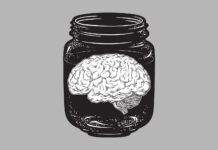Causality in Mental Disturbance: A Review of the Neuroscience
Psychiatry's medicalization of social and psychological suffering is not justified by the currently known biology.
Giving Caregivers a Platform: Meagan, Mother of Matt
A mom describes her son's descent into the harms of psychiatry—and his way out. "It was really difficult to watch Matt decline. He had given up hope that he could get well."
“You Can’t Coerce Someone into Wanting to Be Alive”: The Carceral Heart of the...
“You can’t coerce someone into wanting to be alive. Force just doesn’t work. People must be invited to live while supporters (healthcare professionals, social workers, loved ones) make their lives and world more habitable.”
Busting the Deinstitutionalization Myth: We Actually Have More Beds Than Ever Before
New data upends common beliefs about asylum closures, deinstitutionalization, and rates of psychiatric coercion.
William Styron: His Struggles with Psychiatry and Its Pills
Author William Styron is often remembered for speaking about depression as an illness. But a review of his life reveals that psychiatric drugs may have triggered and even worsened his depressive episodes.
“Not Fragile”: Survivor-Led Mutual Aid Projects Flourish in a Time of Crisis
During the current pandemic, the practice of mutual aid—defined broadly as the ways that people join together to meet one another’s needs for survival and relationship—has become mainstream. Yet, often missing from major media coverage of mutual aid is any acknowledgment of its roots in movements led by marginalized people, including Black and Brown people, disabled people, mad people, and psychiatric survivors.
The Latest “Breakthrough Therapy”: Expensive New Drugs for Tardive Dyskinesia
The increased prescribing of antipsychotics, which frequently cause a brain injury that manifests as tardive dyskinesia, has provided pharmaceutical companies with a lucrative new market opportunity.
And Now They Are Coming for the Unhoused: The Long Push to Expand Involuntary...
Mayor Adams' plan to "involuntarily remove" unhoused people has met with backlash from activists and the unhoused, who say it violates their rights and further entrenches systemic racism.
Medicating Preschoolers for ADHD: How “Evidence-Based” Psychiatry Has Led to a Tragic End
The prescribing of stimulants to preschoolers diagnosed with ADHD is on the rise, which is said to be an "evidence-based" practice. A review of that "evidence base" reveals that claims that ADHD is characterized by genetic and brain abnormalities are belied by the data, and that the NIMH trial of methylphenidate in this age group told of long-term harm.
The Whistleblower and Penn: A Final Accounting of Study 352
After 18 years, the full story of the scientific corruption in a study of paroxetine for bipolar disorder, and the psychiatrist who blew the whistle.
Diving into Your Soul: Lessons from “Queer Eye”
"Queer Eye" has a fresh, therapeutic twist: Installment after installment, it sends the repeated messages: Take care of yourself. Be kind to yourself. You’re beautiful. You’re good. We love you. Love yourself. Or, in the words of Van Ness: Yass, queen!
World Benzodiazepine Awareness Day 2020
This week on MIA Radio, we present the second part of our podcast to join in the events for World Benzodiazepine Awareness Day 2020...
A Neuroscientist Evaluates the Standard Biological Model of Depression
Current evidence does not support a biological hypothesis of depression. It is far better predicted by levels of childhood trauma, life stress, and lack of social supports.
Suicide Hotlines and the Impact of Non-Consensual Interventions
Those struggling with suicidal thoughts may stay silent instead of reaching out to suicide hotlines because they fear non-consensual intervention and the harmful impact of police involvement.
A New Paradigm for Testing Psychiatric Drugs Is Needed
This paper reviews the problems with the usual double-blind, placebo-controlled trials on which drug approvals are based, and advocates for a stricter form of testing psychiatric drugs with patient-relevant outcomes, real comparators, long-term outcomes, and assessment of harms.
In the Courts, a Partial Win for Informed Consent and ECT Justice
Price Hancock views the Thelen verdict as a partial win. "The jury agreed that the manufacturer 'failed to warn.’ That's huge. It's a step in the right direction."
The Algorithmic Managing of ‘At-risk’ Children
Part two of a Mad In America investigation into the expansion of psychological screening and electronic surveillance of children and youth. Experts point to mounting evidence that scientifically dubious mental health screening programs are just one part of an international governance shift towards creating all-pervasive surveillance systems for diagnosing 'pre-crime' and managing 'at-risk' children and youth. And not only is this not helping kids, critics argue, it’s demonstrably harming them.
After MIA Calls for Retraction of STAR*D Article, Study Authors Double Down on the...
In their letter to the editor, Rush et al. have doubled-down on the fraud they committed in their 2006 summary report of STAR*D outcomes.
Prescribing an Epidemic: A Veteran’s Story
Had I known what I know now, I never would have taken any of these drugs, and I absolutely would not have taken a role in which my outreach efforts to get veterans into mental health treatment might place thousands of lives at risk.
Where Critical Psychiatry Meets Community Resilience
The International Society for Ethical Psychology and Psychiatry had the clout to draw a stellar line-up of presenters to its recent conference, including internationally prominent critics like David Healy, Peter Gøtzsche, Robert Whitaker and Allen Frances. There were lots of learnings and even some tense discussions, but one of the most intriguing aspects of the entire conference was the way in which scientific and social issues became deeply intertwined, especially when presenters reached for better pathways forward.
Screening for Perinatal Depression: An Effective Intervention, or One That Does More Harm Than Good?
Why does the U.S. describe perinatal screening as providing a proven benefit, while the task forces in the U.K. and Canada see no evidence of such benefit?
Why Isn’t There a Popular Hashtag for Involuntary Commitment?
As uses of psychiatric force expand, can social media be better used to focus critical attention?
Mental Health Apps: AI Surveillance Enters Our World
While the developers are promoting the apps as a public health initiative, they are effectively an AI that would be snooping on you at all times—ostensibly coming to know you better than you know yourself. And ultimately doing so for commercial purposes that will expand the psychiatric enterprise.
SSRIs, Lindsay Clancy, and Me
Sharing the similarities between Lindsay Clancy's homicidal episode and my own will hopefully help prevent rare SSRI-induced suicides and homicides, including mass shootings.
Voting While “Mentally Ill”: A Legacy of Discrimination
Legal and practical barriers to voting disenfranchise people judged "mentally incompetent." The centuries-old, unclear laws and regulations also disproportionately affect people of color.

































